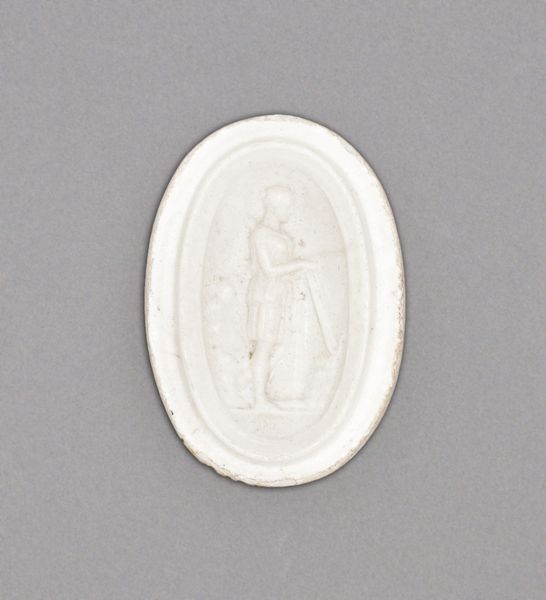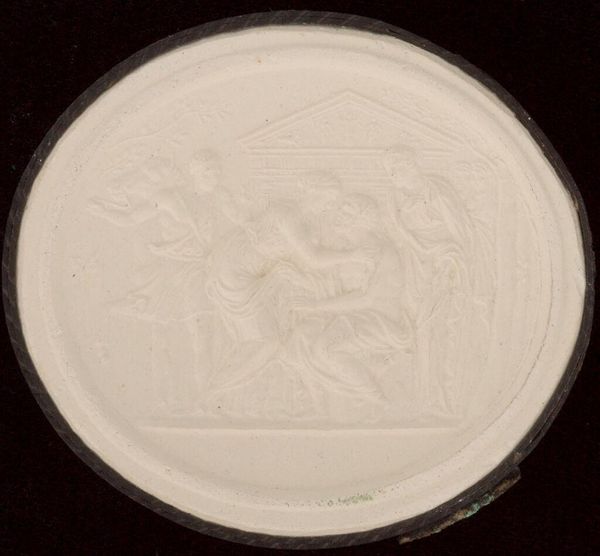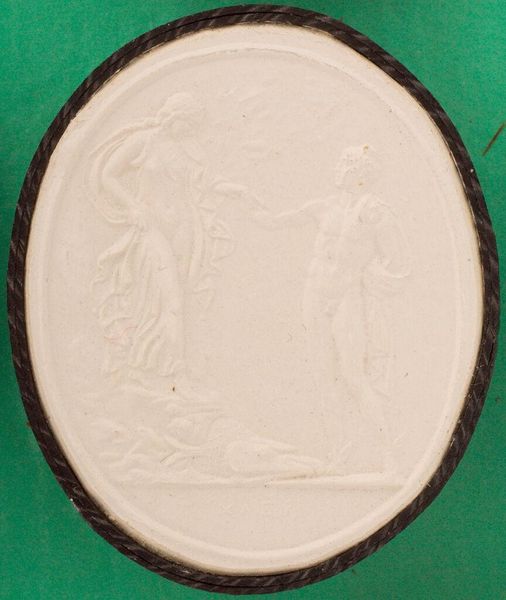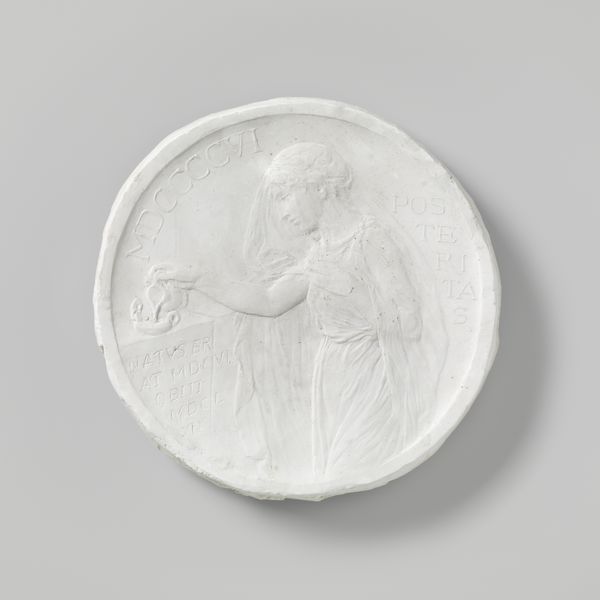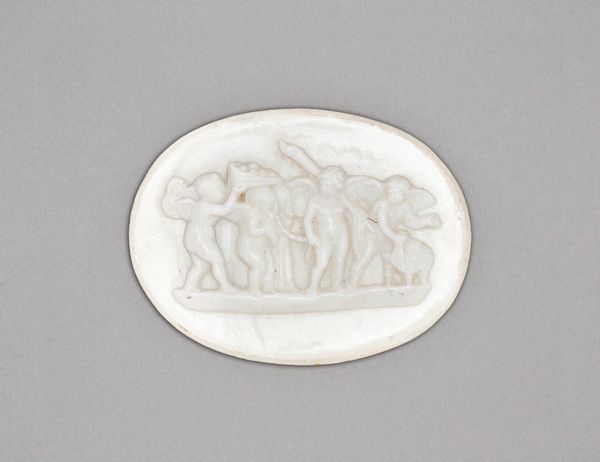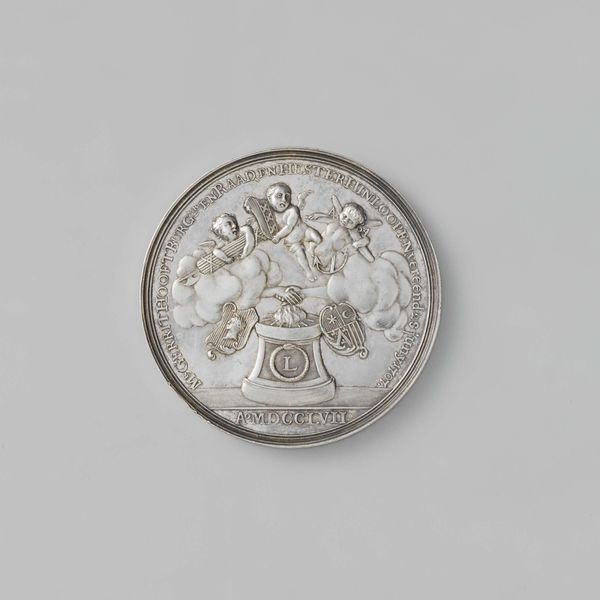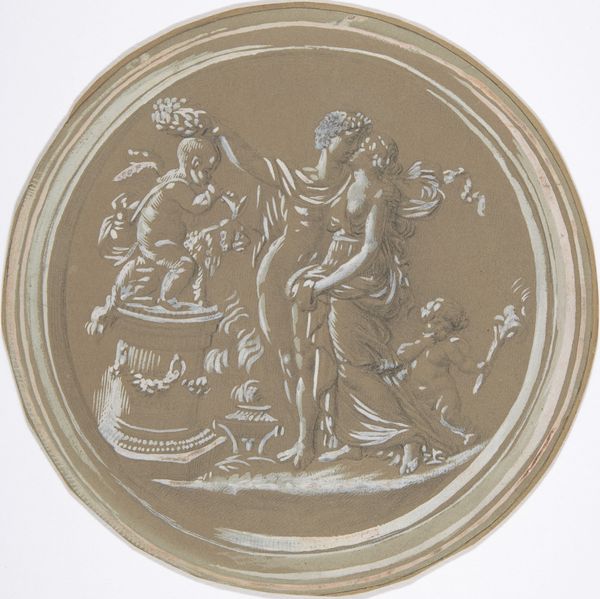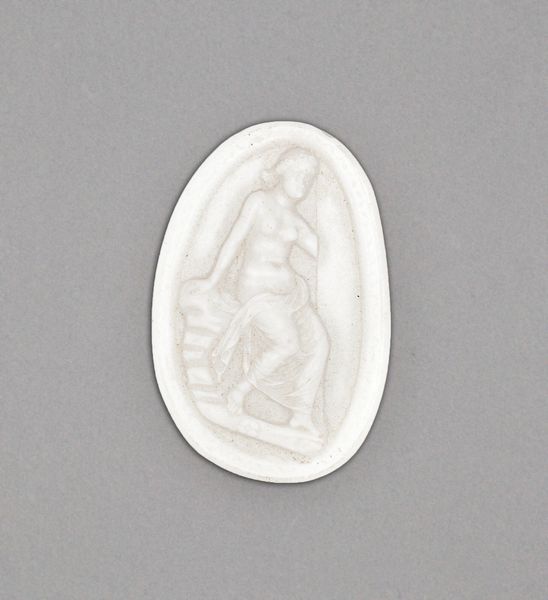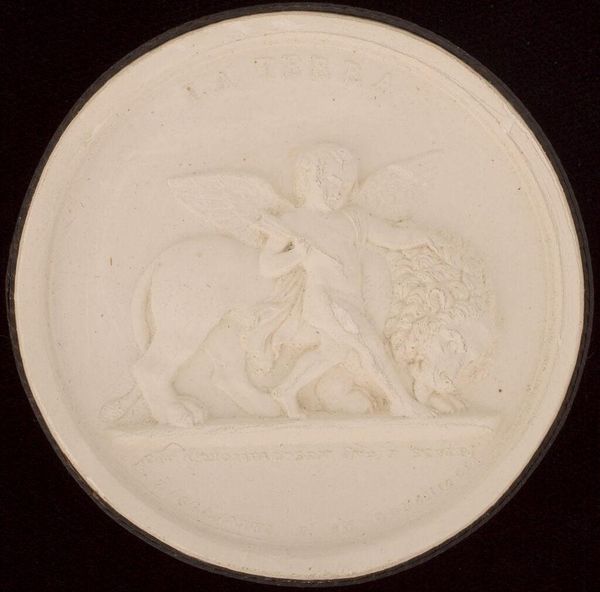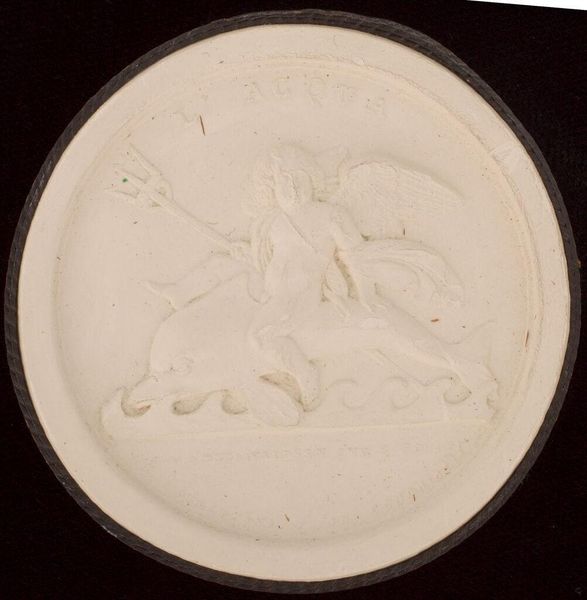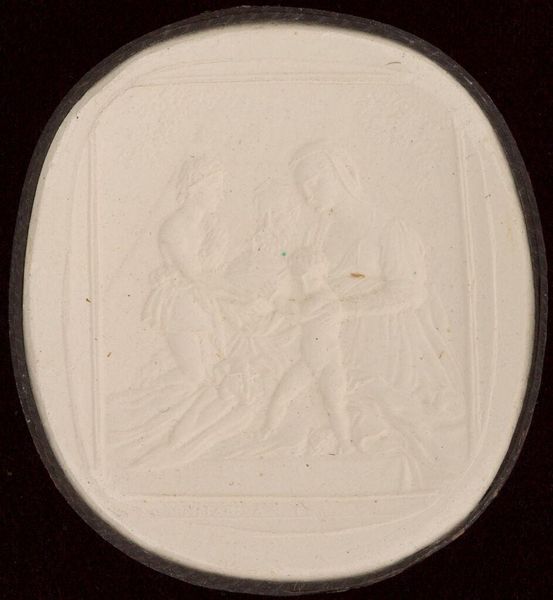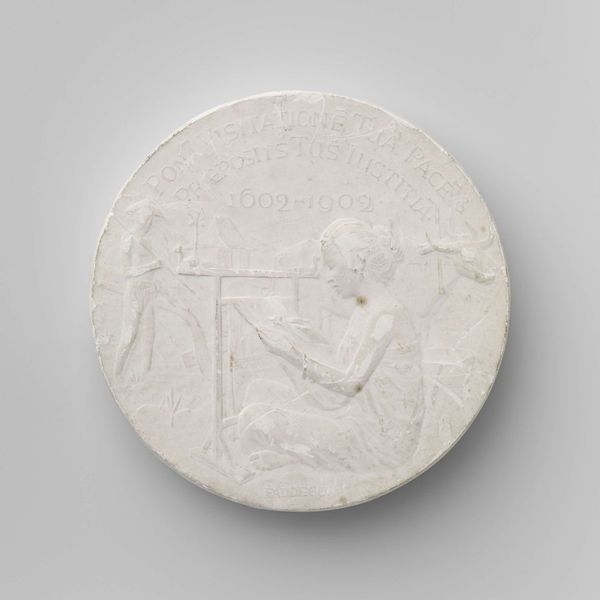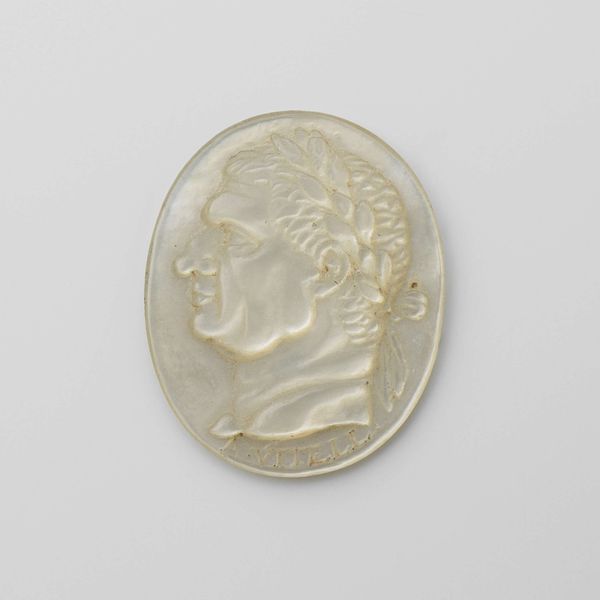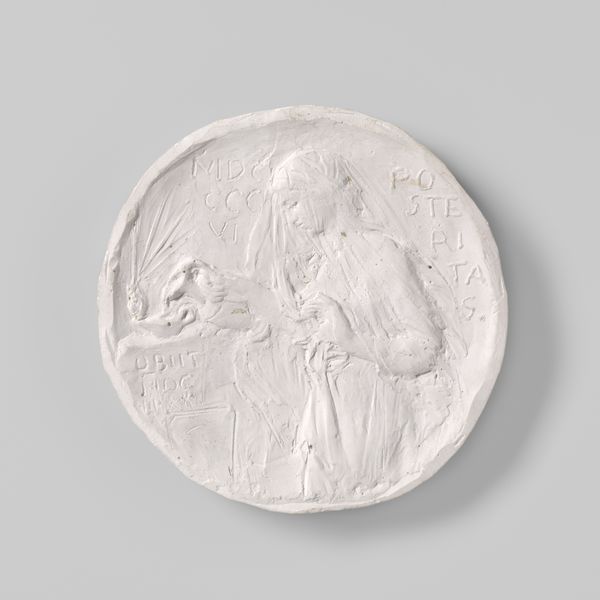
ceramic, sculpture, marble
#
portrait
#
neoclacissism
#
decorative element
#
ceramic
#
classical-realism
#
sculptural image
#
figuration
#
classicism
#
sculpture
#
academic-art
#
marble
#
nude
Dimensions: H. 2.9 cm (1 1/8 in.)
Copyright: Public Domain
James Tassie created this glass paste intaglio depicting the Three Graces sometime in the late 18th century. Tassie was a Scottish modeler who achieved fame across Europe for his reproductions of ancient cameos and intaglios. These he sold to collectors, tourists, and scholars. The image of the Three Graces can be traced back to ancient Greece and Rome, but it experienced a massive resurgence in popularity in the 18th century. As taste shifted towards Neoclassicism, many artists turned to antiquity for inspiration. It is likely Tassie produced this intaglio for wealthy Grand Tourists looking for souvenirs of their travels that would signal their sophistication and knowledge of the classics. Historians use an array of resources to understand art, from letters and diaries to account books and inventories. These help us reconstruct the social and institutional contexts that shape artistic production and reception. By studying these contexts, we gain a deeper appreciation for the public role of art and the power of images.
Comments
No comments
Be the first to comment and join the conversation on the ultimate creative platform.
